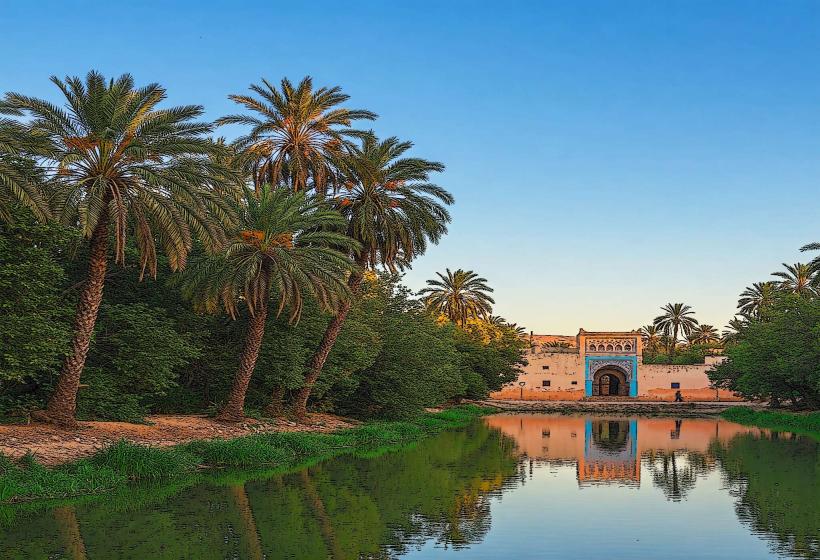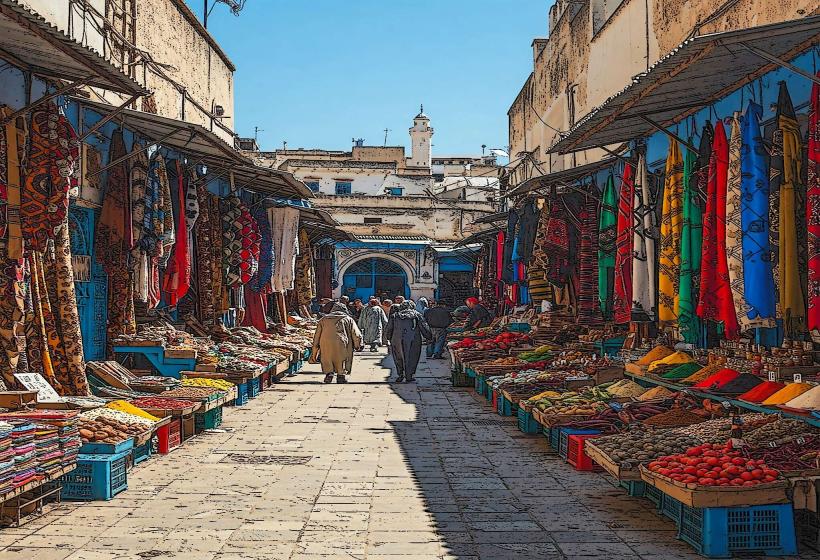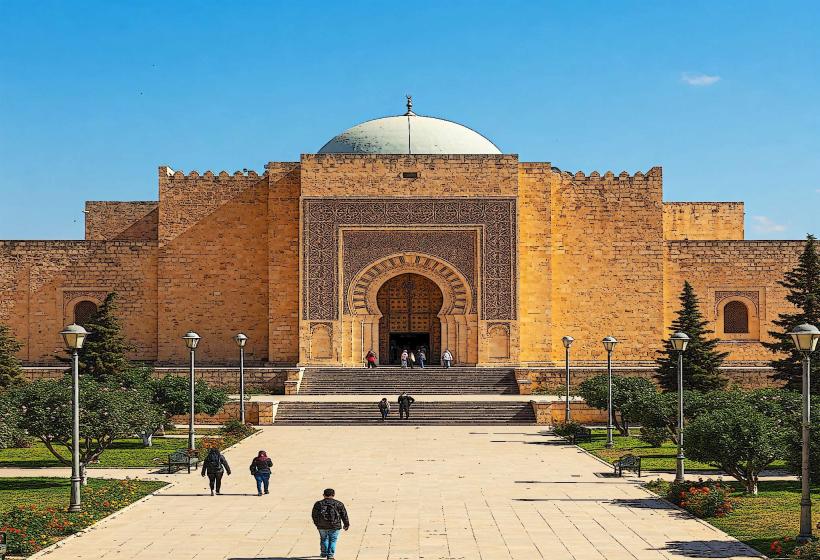Information
Landmark: Great Mosque of Sidi Bel AbbèsCity: Sidi Bel Abbes
Country: Algeria
Continent: Africa
Great Mosque of Sidi Bel Abbès, Sidi Bel Abbes, Algeria, Africa
The Great Mosque of Sidi Bel Abbès is a significant religious structure located in the city of Sidi Bel Abbès, Algeria.
This mosque serves as a central place of worship and a historical monument within the region.
Visual Characteristics
The mosque features a central dome constructed from white stone, with minarets reaching approximately 30 meters in height. The exterior walls are primarily composed of light-colored sandstone, exhibiting geometric patterns characteristic of traditional Islamic architecture. The main prayer hall is supported by numerous columns and features arched doorways and windows.
Location & Access Logistics
The Great Mosque is situated in the city center of Sidi Bel Abbès, approximately 1.5 kilometers south of the main train station. Access is via Rue Larbi Ben M'hidi. Limited street parking is available in the vicinity, and public transport routes, including bus lines 3 and 7, stop within a 200-meter radius of the mosque.
Historical & Ecological Origin
Construction of the Great Mosque began in 1905 and was completed in 1910. It was designed by architect Louis-Auguste Hurel. The mosque was built on the site of an older marabout, dedicated to Sidi Bel Abbès, a 14th-century Sufi saint. Its original purpose was to serve as a primary place of Islamic worship for the growing population of the city.
Key Highlights & Activities
Visitors can observe the mosque's architectural details. Non-Muslims are permitted to enter the courtyard and exterior areas during non-prayer times. Photography of the exterior is allowed. The interior prayer hall is accessible to Muslims for prayer services.
Infrastructure & Amenities
Restrooms are available within the mosque complex. Limited shaded areas are present in the courtyard. Cell phone signal (4G) is generally good within the mosque grounds. No food vendors are located directly on-site, but numerous cafes and restaurants are situated within a 500-meter radius.
Best Time to Visit
For photography, the morning hours (9:00 AM - 11:00 AM) offer favorable lighting on the sandstone facade. The best months for visiting are generally from March to May and September to November, avoiding the peak summer heat and winter rains. Access is restricted during daily prayer times.
Facts & Legends
A local tradition states that the tomb of Sidi Bel Abbès himself was originally located on this site, though his remains were later moved. The mosque's construction was funded by local contributions and a grant from the French colonial administration at the time.
Nearby Landmarks
- Musée de la ville de Sidi Bel Abbès (0.3km North)
- Place du 1er Novembre 1954 (0.4km Northwest)
- Parc de la Fraternité (0.6km East)
- Cathédrale du Sacré-Cœur (now a cultural center) (0.7km West)




